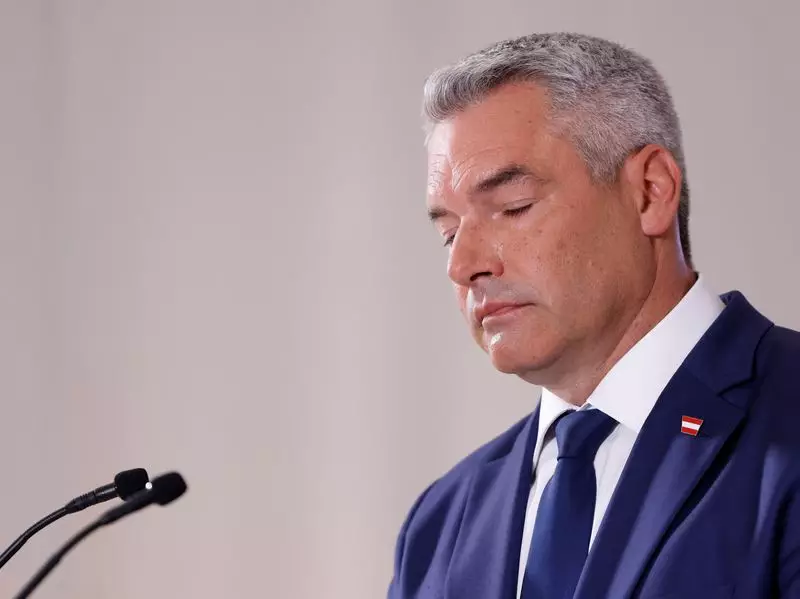Austria is currently facing a seismic political upheaval following the resignation of Chancellor Karl Nehammer, which has left the ruling conservative People’s Party (OVP) in disarray. As the impact of the recent parliamentary elections reverberates through the political landscape, the OVP is grappling with the formidable challenge of forming a new government amid the growing influence of the far-right Freedom Party (FPO). This article examines the context surrounding Nehammer’s resignation, the implications for Austrian politics, and the potential avenues that lie ahead.
Chancellor Nehammer’s resignation came as a shock to many, particularly as it followed the unsuccessful attempts to forge a coalition government that would keep the FPO on the sidelines. The dissolution of negotiations—initially aimed at creating a centrist coalition—signals a worrying trend for the OVP, which has historically maintained its position at the forefront of Austrian politics. In filling the leadership void, the OVP has resorted to interim measures, with Secretary-General Christian Stocker stepping in temporarily. This lack of stability evinces the deeper problems within the party and raises questions about its future direction.
The abrupt halt in coalition discussions stems from the FPO’s emergence as a dominant political force, securing approximately 29% of the vote in the recent election. As the first party in the polls, the FPO’s strength signifies a shift in public sentiment and growing acceptance of far-right politics. President Alexander Van der Bellen now faces a precarious task; either he must entertain the prospect of collaborating with the FPO or risk the call for a snap election, which could further delay the establishment of a stable government.
The selection of a new OVP leader is fraught with complications. Initial reports implicated high-profile figures like former Chancellor Sebastian Kurz, who previously oversaw a coalition with the FPO, but these rumors have since been laid to rest. Instead, potential leadership candidates such as Wolfgang Hattmannsdorfer, who are less familiar to the public, emerge as possible successors. This leadership vacuum not only raises concerns about the OVP’s strategic direction but also the perception of its authority among constituents.
The new leader’s stance toward the FPO will be critical in determining the OVP’s trajectory. Should the party choose to engage with the far-right, it risks alienating centrist voters and could minimize its political capital. Conversely, outright rejection may yield short-term moral satisfaction but leave the OVP vulnerable in future electoral contests as public support for the FPO potentially swells unchecked. The implications are particularly acute given that both parties share overlapping ideologies, particularly in areas such as immigration policy—making collaboration seem pragmatically viable yet politically sensitive.
As OVP leaders convene to navigate through this political uncertainty, the prospects for Austria lie shrouded in ambiguity. The OVP must address its internal divisions while also responding to the electorate’s demands without compromising its principles. Critics like Markus Wallner underscore the urgency of avoiding a national crisis, suggesting a preference for a responsible, unified approach to governance, rather than rushing into a potentially tumultuous snap election.
Nationwide, the FPO has been leveraging the political vacuum to amplify its message—calling for a ‘Chancellor Kickl’ at a time when many Austrians are likely feeling disillusionment toward the established political order. The FPO’s strategy of presenting itself as the solution resonates with a growing segment of the population upset with the status quo, creating a fertile ground for the party’s narrative.
Austria’s political scene is at a critical juncture, complicated by the resignation of Chancellor Nehammer, the rising influence of the FPO, and the indecision within the OVP. The interplay between these factors will determine the future of Austrian governance. The country’s leadership must tread carefully to navigate a path back to stability, recognizing that the decisions made in the coming weeks could have long-lasting ramifications for the political landscape. As Austria stands on the precipice of change, the outcome remains uncertain but undoubtedly significant.

